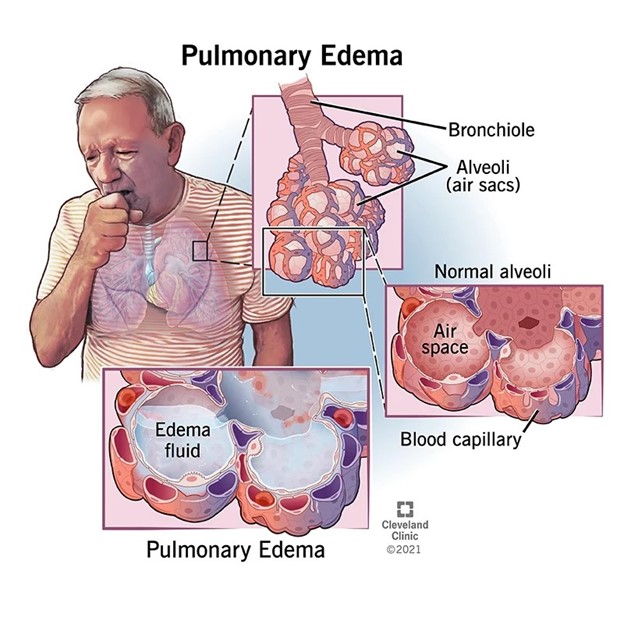A nurse is reinforcing teaching about disease management with a client who has GERD.
Which of the following statements should the nurse make?
"You should eat three large meals and two snacks per day."
"You should lay down for 1 hour following a meal."
"You should elevate the head of the bed while sleeping."
"You should only drink 2 cups of coffee per day."
The Correct Answer is C
Elevating the head of the bed while sleeping is a recommended strategy for managing GERD (gastroesophageal reflux disease). By raising the head of the bed, gravity helps to prevent stomach acid from flowing back into the esophagus, reducing the likelihood of acid reflux and associated symptoms.
"You should eat three large meals and two snacks per day" is not recommended for GERD management. Instead, it is advised to have smaller, more frequent meals throughout the day to reduce the pressure on the stomach and minimize the likelihood of acid reflux.
"You should lay down for 1 hour following a meal" is not recommended for GERD management. It is advised to avoid lying down immediately after meals, as this can increase the risk of acid reflux. It is generally recommended to wait at least 2 to 3 hours before lying down.
"You should only drink 2 cups of coffee per day" is a specific recommendation related to caffeine intake, which can potentially trigger or worsen GERD symptoms in some individuals. However, this statement alone does not encompass the comprehensive dietary recommendations for managing GERD.
Nursing Test Bank
Naxlex Comprehensive Predictor Exams
Related Questions
Correct Answer is A
Explanation
Insulin lispro is a rapid-acting insulin, while insulin glargine is a long-acting insulin. It is important to keep them separate to maintain their individual properties and avoid any potential interactions or changes in their effectiveness.
Insulin glargine is a clear solution and should not appear cloudy. Cloudiness in insulin can indicate contamination or improper storage.
The instruction to "take an extra dose of insulin lispro prior to aerobic exercise" is not recommended. The client should consult with their healthcare provider to determine if any adjustments to their insulin regimen are necessary for exercise. Typically, adjustments are made based on the individual's blood glucose levels and anticipated intensity and duration of exercise. Insulin glargine is a long-acting insulin that provides a steady release of insulin over a prolonged period, without distinct peaks or valleys in its action. Its onset of action is gradual and its effect lasts for approximately 24 hours.
It is important for the client to receive accurate and appropriate instructions regarding their insulin regimen. The nurse should clarify any misunderstandings and provide accurate information to promote safe and effective diabetes management.
Correct Answer is C
Explanation
Fluid overload refers to an excess volume of fluid in the body, which can occur as a result of various factors, including excessive fluid intake or inadequate fluid removal. Crackles heard in the lungs, also known as rales, can indicate fluid accumulation in the lungs, a condition known as pulmonary edema. It is a common manifestation of fluid overload and can be detected through auscultation of the lungs.

Weight loss is typically associated with inadequate calorie or nutrient intake, rather than fluid overload.
Weight loss is typically associated with inadequate calorie or nutrient intake, rather than fluid overload.
Weight loss is typically associated with inadequate calorie or nutrient intake, rather than fluid overload.
Whether you are a student looking to ace your exams or a practicing nurse seeking to enhance your expertise , our nursing education contents will empower you with the confidence and competence to make a difference in the lives of patients and become a respected leader in the healthcare field.
Visit Naxlex, invest in your future and unlock endless possibilities with our unparalleled nursing education contents today
Report Wrong Answer on the Current Question
Do you disagree with the answer? If yes, what is your expected answer? Explain.
Kindly be descriptive with the issue you are facing.
